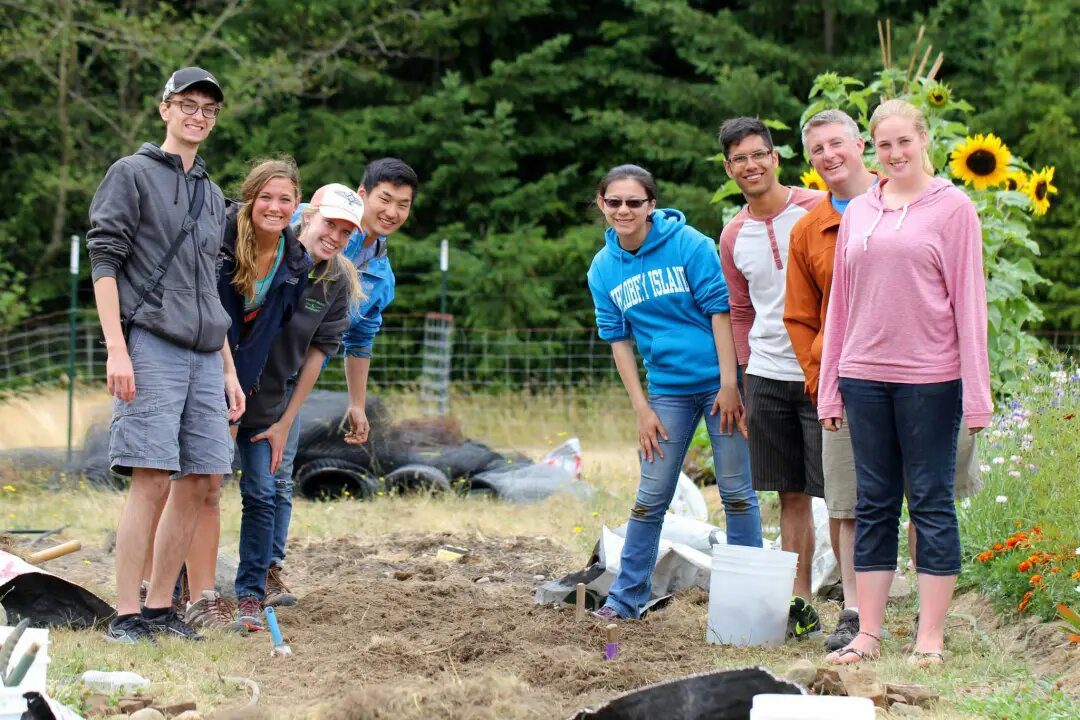If you are between the ages of 11 and 26 in 2023, you are considered a member of Gen Z, a generation of digital natives who are on track to be the most well-educated generation in history. As the generation that will inherit environmental problems, you’ve already got an eye for the hope of caring for creation and see the need for putting your faith into action.
If you were raised in the church, there’s a chance you may have not seen the same degree of concern about the planet’s health included in sermons or taught in Sunday school. But this is changing in churches across the country.
There is a need for voices of faith to speak into the subject of a climating change, both inside and outside of the church. Inside the church, more can be done to help congregants see their responsibility to care for God’s good creation. And outside of the church there’s a world that feels discouraged and defeated about the future of our planet – and we can offer them hope.
The hope that we have as Christians can provide purpose and vision for those who feel overwhelmed by the enormity of the climate crisis.
If you’re hungry to bring together creation care and Christ’s hope and restoration, here are ways you can connect with like-minded believers or lead the charge in your community:
Lead a Discussion at Your Church
It can be intimidating to stand up for what you believe in, especially with other generations who might not share the concerns surrounding the climate. But it’s precisely people like you—young people with passion, energy, and the love of Christ motivating them—that Jesus encouraged to live out their faith.
In Paul’s letter to Timothy, Paul encouraged his young disciple: “Don’t let anyone look down on you because you are young, but set an example for the believers in speech, in conduct, in love, in faith, and in purity” (1 Timothy 4:12 NIV).
You can be a voice and influence of change in your local church community, just like Timothy, whether you’re a junior high or high school student, college student, or young adult. Sojourners offers a free, illustrated, 20-page resource called Creation & Climate Care Zine that would make an excellent guide for a small group discussion.
The Zine offers biblical support for creation care, reasons why climate change impacts our ability to love our neighbors, an explanation of climate justice, actionable steps people can take to care for creation, and a discussion guide that can help you guide your community into deeper empathy for creation and our neighbors who are experiencing the significant adverse effects of climate change.
Connect with Other Climate-Minded People

Image: Youth and Young Adult Climate Summit
Sometimes, the witness of climate action and creation care can feel lonely in our local communities. It’s important to find other like-minded people and join a network of passionate believers who affirm the importance of caring for creation.
The Youth and Young Adult Climate Summit July 7 in Kansas City (part of the Biennial Convention of the Mennonite Church USA’s MennoCon23) invites youth and young adults together to hear from experts in climate change, spiritual activism, and social justice to explore ways that you can put your faith to work to address the climate crisis.
You can also connect with Young Evangelicals for Climate Action (YECA), which exists to “equip, empower, and catalyze young Christians to love God and love our neighbors through bold, wholehearted, and faithful climate action in our church and community in order to create a more just, equitable, and loving world.” They offer leadership programs, resources, and a call to share your climate testimony on their website.
Incorporate Environmental Studies into Your Career
If creation care is a passion of yours, listen to your heart. The things that make our heart beat with love are the same things God loves, and that empathy and compassion is God-given. The gifts and talents you hone join with the desires of your heart into a calling that can serve as the compass in your hunt for a satisfying and rewarding career.
Many different Christian colleges and universities across the country offer programs, majors, and minors in creation care-related fields. We’ve featured some of them in Root & Vine’s Education column.

Image: Au Sable Institute
You can also explore the Au Sable Institute’s list of partner colleges. The Au Sable Institute is a Christian organization that “prepares students for careers in solving the earth’s toughest environmental challenges.” Au Sable partners with colleges to provide field-based science education, opportunities for research in the natural world, a foundation of Scripture to define principles that guide our environmental attitudes and behaviors, and a broader community of common purpose and mutual support for students, alumni, and supporters.
Bring the Light of Christ into the Climate Conversation
Just because you are a Christian doesn’t mean you have to work with Christian organizations to make a difference. In fact, Jesus called his disciples to Go and make disciples in all the world, not just in the places that already know him. The message of Christ is a message of hope that the despairing world needs. With the belief in Christ’s work of restoration and redemption, we are empowered through the Holy Spirit to make change happen, to be a part of the birth of the new creation, to partner with Jesus to change people’s lives for the better.
Your perspective and your loving witness can make a world of difference, no matter what type of organization you serve.
Take Small Steps in Your Local Community
Big change happens when lots and lots of everyday people make commitments to change their behavior in incremental ways. Participate in local conservation efforts, like park clean-ups, tree plantings, native species education, and recycling campaigns. Help out in a community garden or start your own. Contact your local representatives and advocate for creation care. Explore creative ways you can reduce your reliance on fossil fuels. Your life is a personal testimony that will encourage others to examine their own practices.
What are you doing already to care for creation? We’d love to hear your story! Shoot us a comment or message on Instagram, and maybe we will feature your story in our community.





 Copyright
2024
Root and Vine
Copyright
2024
Root and Vine